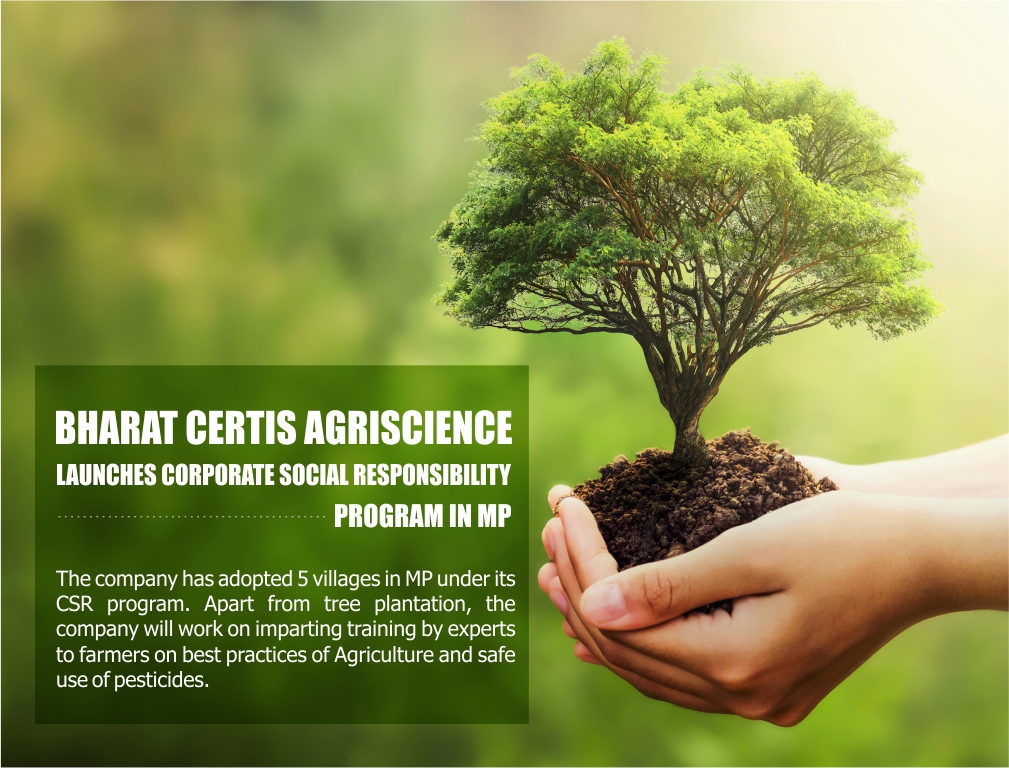
What Are Plant Growth Regulators and Why Are They Essential for Agriculture?
10 th October 2024
Farming is about maximizing the potential of your yields achieving robust growth, large yields, and superior-quality produce. One of the most effective tools for achieving these goals is Plant Growth Regulators (PGRs). But what exactly are PGRs, and why are they so important to modern agriculture?
What Are Plant Growth Regulators?
Plant Growth Regulators, commonly known as PGRs, are chemical compounds that influence the growth processes of plants in a controlled and precise manner from root development to fruit production. Unlike fertilizers, which provide essential nutrients, PGRs modify the way plants utilize these nutrients, improving their growth and productivity. Think of PGRs as the “vitamins” for plants—guiding them to grow stronger, produce more, and achieve desired characteristics.
Bharat Certis: Offering a Comprehensive Range of PGRs
Bharat Certis provides a diverse selection of PGRs, each customized to meet the specific needs of different crops:

Algebra: This PGR promotes overall plant growth, resulting in larger plants and bigger, more developed fruits.
Bilsan: By optimizing energy production and utilization within the plant, Bilsan significantly boosts growth rates.
Kundan: A blend of natural stimulants, Kundan enhances the plant’s ability to manage stress and improve growth under challenging conditions.
SD Macro: This product enriches the soil with essential nutrients, supporting the development of strong roots and healthy shoots.
Sogaat: Sogaat regulates fruit ripening, allowing farmers to time their harvests perfectly and reduce post-harvest losses.
Toki: Focused on root health, Toki ensures that plants develop a strong foundation, which is critical for overall plant vigor.
Vestar: By controlling the vertical growth of plants, Vestar helps maintain an optimal plant height, making crops easier to manage and harvest. Vestar enhances flowering and hence maximizes yield.
The Benefits of Using PGRs in Agriculture
Why Choose Kocide 3000
1. Better Growth and Higher Yields: PGRs like Algebra and Bilsan are instrumental in stimulating plant growth, leading to more vigorous plants and increased yields. By directing the plant’s energy more efficiently, these products help farmers get the most out of their crops.
2. Higher Produce Quality: Products like Kundan and Vestar are designed to enhance the quality of fruits and flowers. They help produce that not only meets market standards but also fetches.
3. Abiotic Stress Management: PGRs such as Toki, Kundan, SD Macro and Vestar help build plant resistance to climatic stress such as heat, cold, moisture stress and salinity
4. Stronger, More Resilient Plants: PGRs like Toki and SD Macro strengthen crops by promoting better root development and nutrient absorption. This resilience is crucial, particularly in areas prone to environmental stressors like drought.
5.Optimized Harvest Timing:Sogaat provides farmers with control over the ripening process, ensuring that fruits are harvested at the ideal time. This precision reduces waste and ensures that the produce is of the highest quality when it reaches the market.
The Future of PGRs in Sustainable Agriculture
As agriculture faces new challenges, including climate change and the need for more sustainable practices, the role of PGRs will continue to grow. Bharat Certis is at the forefront of this evolution, offering PGRs that are not only effective but also environmentally responsible. These products help farmers meet the demands of modern agriculture while safeguarding the environment..
Plant Growth Regulators (PGRs): An Important Tool in Modern Farming
Plant Growth Regulators are more than just chemicals; they are essential tools that enable farmers to maximize their crops' potential. Whether the goal is to increase yields, improve produce quality, or simplify plant management, PGRs offer a solution. As part of a comprehensive farming strategy, PGRs from Bharat Certis can help farmers achieve their agricultural goals while promoting sustainable practices.